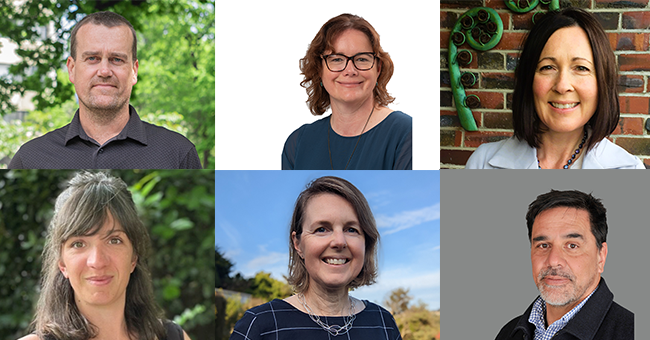Lung cancer is the greatest single cancer contributor to the life expectancy gap between Māori and non-Māori. University of Otago researchers are hoping to change that.
Since 2018, they have been working on joint research projects with Health New Zealand | Te Whatu Ora. Collectively called Te Oranga Pūkahukahu, the projects are focused on providing information to inform the development of an effective, equitable lung cancer screening pathway that could be introduced in Aotearoa New Zealand.
Te Oranga Pūkahukahu has just received a $5 million funding boost from the Health Research Council.
It is one of seven programme and project grants, worth a total of $12.2 million, that have been announced for Otago in the latest HRC Projects and Programmes funding rounds.
Study lead Professor Sue Crengle (Kāi Tahu,Kāti Māmoe, Waitaha), Co-Director of Otago’s Ngāi Tahu Māori Health Research Unit, says the team is “super-excited” to receive the funding.
“We are all really committed to this research and really want to design a lung cancer screening programme that works for those that most need it.
“Lung cancer is the leading cause of death for Māori women in Aotearoa New Zealand and the second leading cause of death for Māori and non-Māori men. Screening enables the disease to be diagnosed at an early stage, reducing lung cancer deaths by 20 to 26 per cent,” she says.
This funding will, among other things, enable researchers to investigate using a biomarker to improve lung cancer risk prediction, and the use of artificial intelligence (AI) in screening.
“We only offer lung cancer screening to people considered to be at high risk of developing lung cancer, but predicting this risk relies heavily on people’s recall of their personal tobacco use over their lifetime.
“The biomarker we are looking at is known to be an accurate marker for tobacco exposure – both personal tobacco use and second hand smoke exposure – and is associated with cardiovascular disease outcomes. We are looking to see if it improves the accuracy of risk prediction for use in lung cancer screening,” Professor Crengle says.
The AI project will seek views of community members and health professionals on using the technology to read scans, alongside a human radiologist. Māori and European CT scans will also be compared to see if there are any differences in lung tissue which may bias AI models.
Health NZ has a longstanding collaborative relationship through Te Oranga Pūkahukahu, and is co-funding this next phase of the research programme. The programme includes undertaking a second round of scans for participants in earlier trials, and undertaking screening in a rural setting in the Manawatū with support of the local Iwi Māori Partnership Board.
Director of Health Equity at Health New Zealand Dr Karen Bartholomew says this programme grant is designed to directly inform planning for a national lung cancer screening programme.
“The work draws on high profile national and international expertise, and puts New Zealand at the forefront of screening innovation focused on equitable outcomes.”
Otago’s Deputy Vice-Chancellor (Research and Enterprise) Professor Richard Blaikie says it is fantastic to see such critical research being funded.
“Otago has world-leading researchers, carrying out work which benefits New Zealanders across their life course – this programme and all the other grants announced are testament to that.
“I am also pleased to see exceptionally talented emerging researchers receiving recognition for their work, alongside established research leaders – I look forward to following all of them with interest,” Professor Blaikie says.

